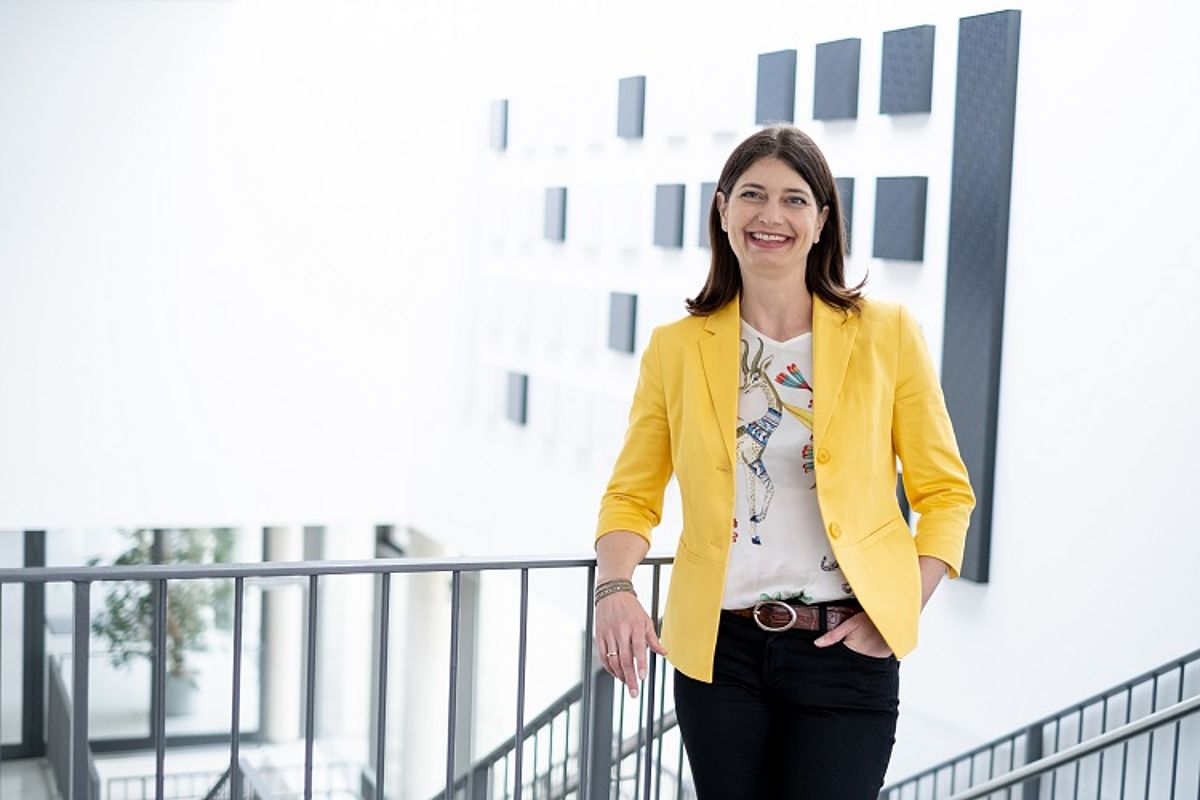This article comes from the 4/2020 issue of the transfer magazine 'TRIOLOG. Science – Economy – Society in Eastern Bavaria' with the emphasis on crisis and opportunity. The university consortium Transfer and Innovation in Eastern Bavaria (TRIO) is a project of six East Bavarian universities, in which the University of Passau is also taking part. The project is being funded from the programme 'Innovative University' by the Federal Ministry of Education and Research (BMBF) and will run for five years. TRIO sees itself as an initiator of innovations in Eastern Bavaria. It aims to expand and actively organise the transfer of knowledge and technology and intensify the exchange between science, economy and society in the region.
What problem areas has the current crisis revealed particularly clearly?
Prof. Dr. Carolin Häussler: In my opinion, the two most important aspects are digitisation and sovereignty. The crisis has shown that digitisation opens up possibilities that enable us to cope better with the pandemic and the associated social distancing. However, Germany still does not have the necessary nationwide fast internet and digital infrastructure. Upgrading is necessary in this respect. We have taken a crash course in digitisation and our openness to working from home, home schooling and digital meetings has increased enormously.
The second point is interdependencies in the critical infrastructure, for example during the production of medicines or medical equipment. There are frequent bottlenecks. In a global economy, not everything can be produced in Germany of course, but there should be a certain level of sovereignty. Therefore, an export country such as Germany has to consider the issue of technological sovereignty in a differentiated manner and from a geostrategic perspective. These weaknesses have also become apparent in the value chains of companies, for example when a supplier has proven to be less reliable than anticipated.
Professor Carolin Häussler
How can we use and increase the innovative strength of fluid organisations?
How can we use and increase the innovative strength of fluid organisations?
Professor Carolin Haeussler has held the Chair of Organisation, Technology Management and Entrepreneurship since 2011 and has been bringing researchers from all over the world to Passau with the International Centre for Economics and Business Studies. She is also one of the principal investigators of the DFG Research Training Group 2720 "Digital Platform Ecosystems (DPE)".
What lessons can companies take from the crisis in the short and longer term so that they are better equipped for a potential crisis in the future?
Häussler: How severely a company is affected by the crisis is largely dependent on the industry. However, even in affected industries, some companies have managed to get through the crisis better than others. Particularly important in this respect are the protection of the company’s liquidity and its resilience. This means having a financial buffer for times of crisis and being crisis-resistant. Crisis resistance, i.e. resilience, can be built up on the one hand by digitisation, which makes it possible to work anywhere and at any time, but also by secure sources of supply or a backup source for a crisis situation. However, it is always necessary to weigh up the pros and cons, as resources that are kept back for a buffer or are spent on backups cannot be invested elsewhere in the company. This leads to a conflict between using the resources as a crisis precaution and using them for growth.
Liquidity and resilience are particularly important.
Professor Carolin Häussler
What does a company need in order to be reasonably crisis-resistant in the long term?
Häussler: Companies generally cope with a crisis quite well if they have an agile and flexible business model. In this context, people often speak of two phases or aspects, the creation phase and the capture phase. The first phase is about the product that a company is creating. The aim is to develop something innovative that has an added value for customers. In the second phase, the company must also manage to exploit the created value for itself. For example by protecting the new product and thus ruling out imitators, or by managing to retain resourceful employees. Especially in times of crisis, it is also important for the business model to be able to adapt flexibly to altered circumstances.
As a member of the Expert Commission for Research and Innovation, you advise the politicians. What measures do you think are sensible and effective for the future?
Häussler: For industries and companies that have been severely affected by the crisis through no fault of their own and would be unable to survive without help, it is expedient to provide short-term assistance to protect their liquidity. For young, innovative companies, I am thinking of venture debt, for example, which has already been granted much more frequently in other countries. In the long term, however, the priority is to promote innovations and technologies that contribute to a sustainable development. And measures should be taken to tackle the second current structural problem, the rising social inequality throughout the world, as well as climate change.
What role does science play in crisis management?
Häussler: The crisis has demonstrated how important science is, and not only epidemiology and medicine. I believe that scientists now, much more than in the past, have to present their findings and knowledge in a manner that is generally comprehensible and make them available to the public. Medium-sized companies are sure to find their proximity to universities an advantage when it comes to finding a suitable agile business model or using new technologies. The area in which we at the University of Passau are able to do a lot is that of artificial intelligence, which can be used to analyse business models and establish new ones. I can see a lot of opportunities for this in the B2B sector in particular.
The interview was conducted by Nicola Jacobi.






